By Leanna Lehman
US Senator Catherine Cortez Masto was in Fallon last Wednesday to discuss the Farm Bill with residents and solicit input regarding what area residents hope to see in the new legislation.
Nearly five years ago, Congress passed the Agricultural Improvement Act of 2018 – commonly known as the “Farm Bill”- which focused heavily on the nation’s agriculture, nutrition, conservation, and forestry policy. Lawmakers, including Cortez Masto, are in committee to discuss updates to the bill, which will potentially have far-reaching implications for Nevada agriculture.
During the invitation-only presentation, Cortez Masto asked attendees what was working in the Farm Bill and what needed to change. “The discussion around this Farm Bill is how we ensure Nevada’s voices are included in that Farm Bill, and we that get something out of it at the end of the day.” Not only is new legislation being proposed for inclusion in the bill, but portions of the old bill must be reauthorized to remain in effect.
Drought is a continual concern for all Nevadans and has been tough on the state’s agriculture - hitting cattle ranchers and livestock producers the hardest. Doug Busselman , Executive Vice President of the Nevada Farm Bureau (NFB), asked the senator to consider measures to create provisions to make federal livestock programs more useable. Cortez Masto, who shares Busselman’s concerns, stated they have been having ongoing conversations specific to the needs of Nevada cattlemen through the Nevada Cattlemen’s and National Cattleman’s Beef Association.
Risk management is another area of great interest to NFB, explained Busselman. “The main priorities that Nevada Farm Bureau has in regard to the development of the next Farm Bill is making sure the risk management tools like crop insurance are maintained as a core component in the legislation going forward. NFB wants to keep conservation programs like EQIP, which provides financial and technical assistance to agricultural producers, in operation for funding important area priorities.” Cortez Masto acknowledged this critical need, stating that she is also working on separate, stand-alone legislation that may be incorporated into the bill.
According to Cortez Masto, other top priorities for the bill include tribal nutrition, large-scale conservation programming, and addressing Nevada’s increasing Mormon cricket infestation. Additionally, improving dairy margin assistance programming, increased funding for hemp production, and research for expanding long-term foreign trade of US agricultural products. Expanded support for state nutrition programs is also central to the legislation, which focuses heavily on programs like the Food Bank of Nevada and similar food assistance efforts.
During the meeting, locals brought forth concerns over several topics, including regenerative agriculture, specialty crop programs, dealing with noxious weeds and pests like mosquitos, and the need to bolster smaller agricultural producers.
“I think it’s important that this bill looks at ways to bolster the small farmers, producers, and packing facilities,” said one participant, noting that the larger producers may be more efficient. However, the overall economic impact and reliance of the system is often better served by smaller farms, ranches, and producers.
One example of the large vs. small producer dilemma is how covid shutdowns heavily impacted agriculture and the distribution of certain agricultural and food products. Kelli Kelly, Executive Director of the Fallon Food Hub and Small Business Development Center, remarked, “There has been a whole push for ‘get big or get out,’ and that system broke entirely during covid . One of the apparatuses that exist in the Farm Bill to support regional food infrastructure are the Local Food and Farmers Market Promotion Programs (LFPP and FMPP) – which are underfunded and federally competitive.” Kelly explained that it has been very difficult to access the necessary funds and asked if there were any ways to improve this.
Cortez Masto stated, “I don’t know if there is a way to put more money in, but if there is not, we need to find a way to make our voices heard.” Her goal for the Farm Bill is to ensure that Nevada’s needs are addressed. The senator explained that funding for any bill is always challenging, “The minute we put more money in the bill, the more competition there will be for the funding. We have to make sure we are ready to go after it.”
The Senate Farm Bill will generate mandatory permanent funding for local foods, farmers’ markets, and producer grant programs. If passed, this expansive legislation will mean a historic investment in land and water conservation without cutting funding from other essential programs.
The bill would also secure dozens of priorities for Native American Nevada communities, focus on large-scale food assistance initiatives, and prioritize water quality and quantity restoration in drought-prone regions. For a complete rundown of Cortez Masto Farm Bill priorities, visit www.bit.ly/3A7qEi8

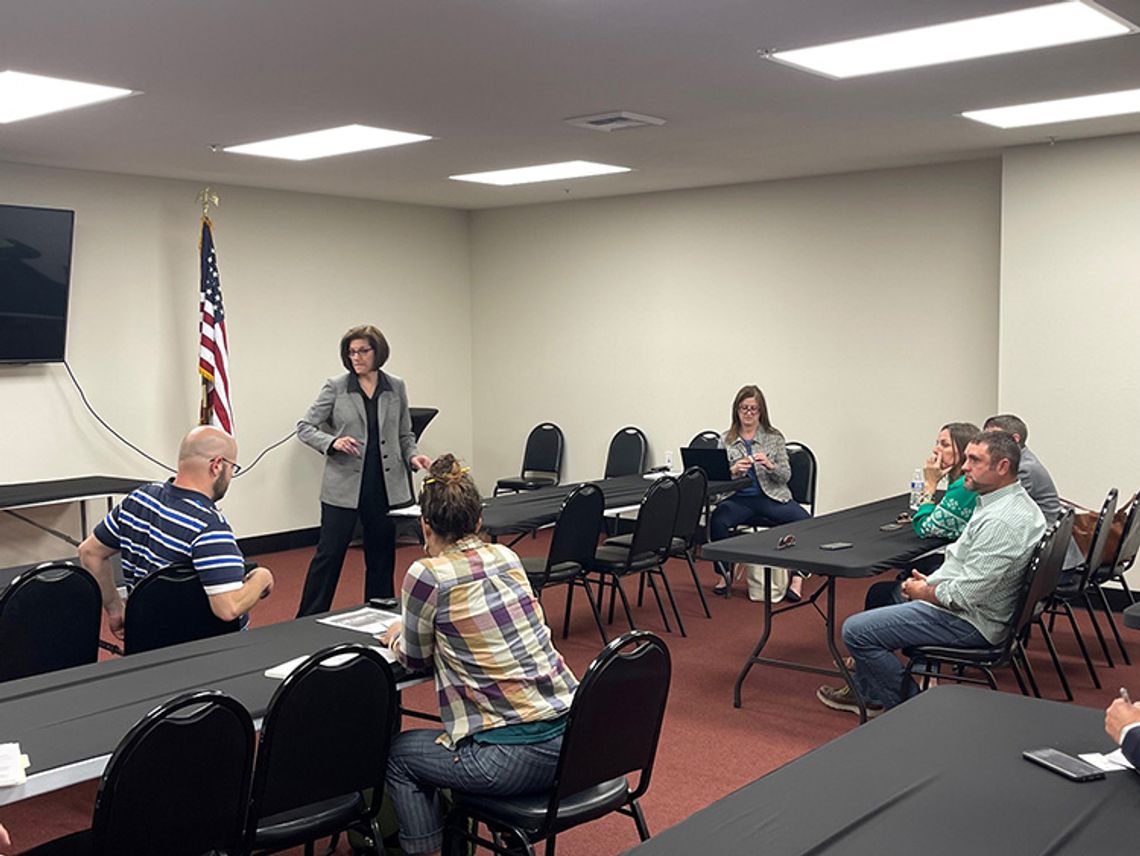
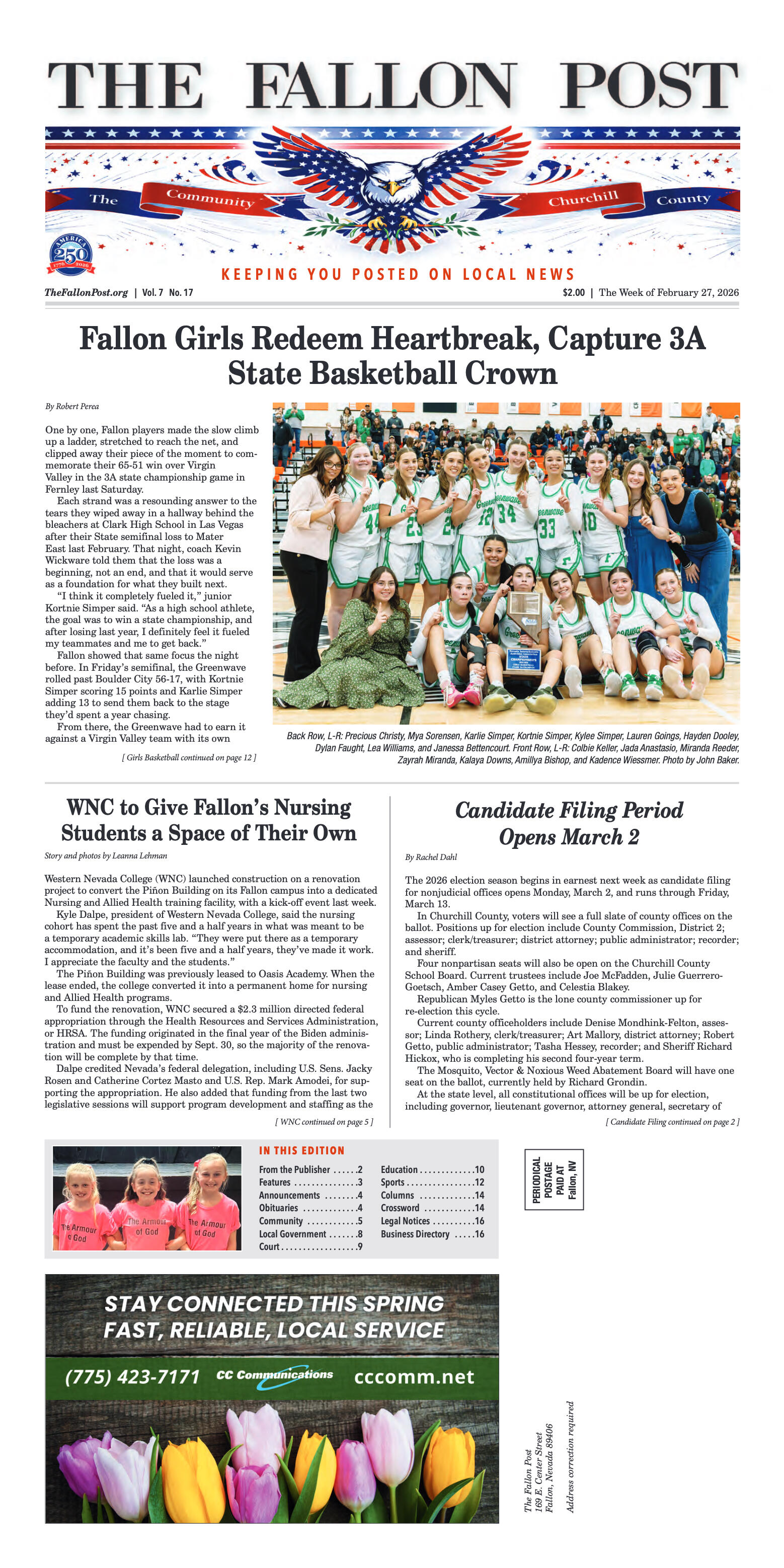
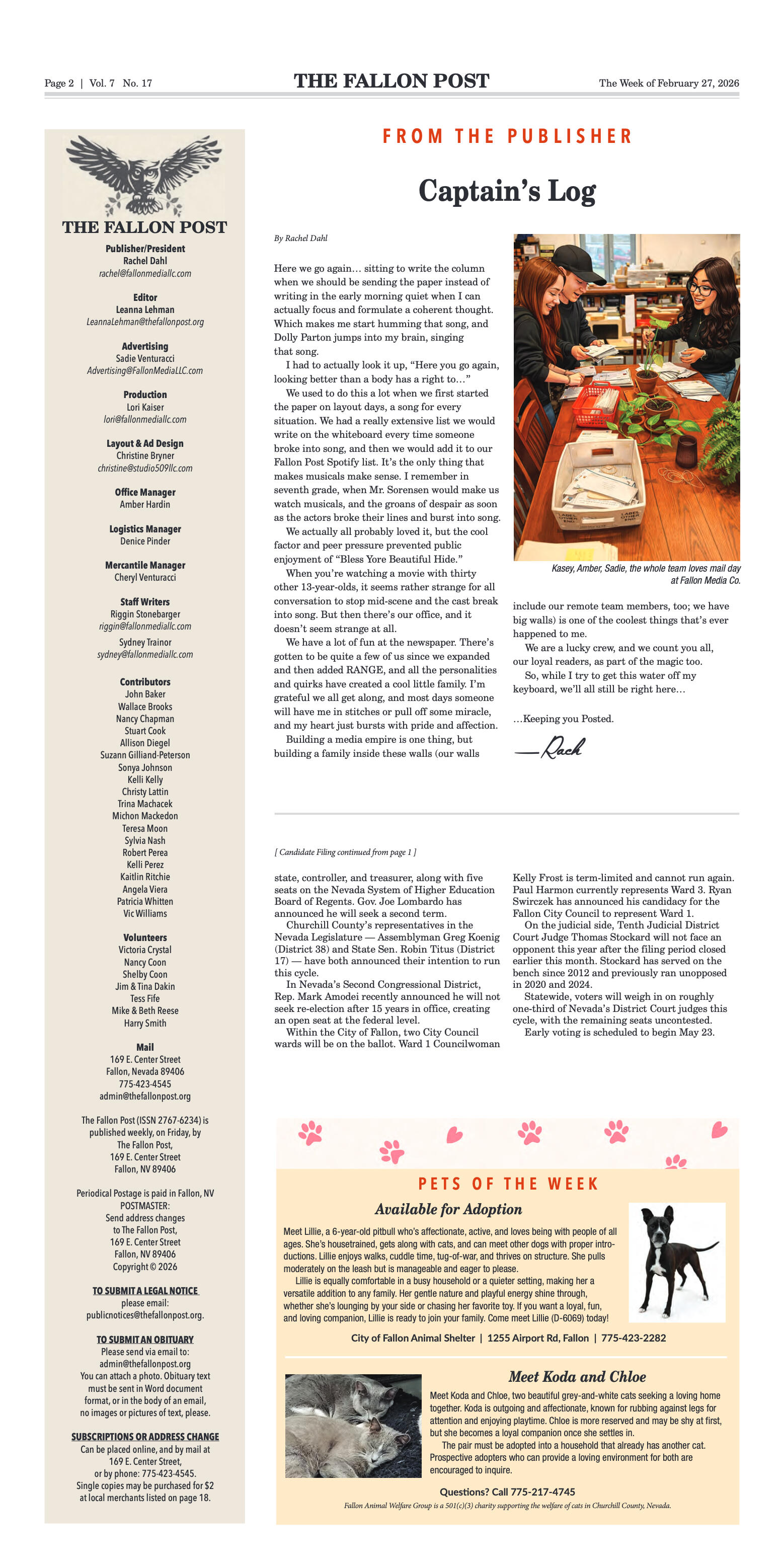
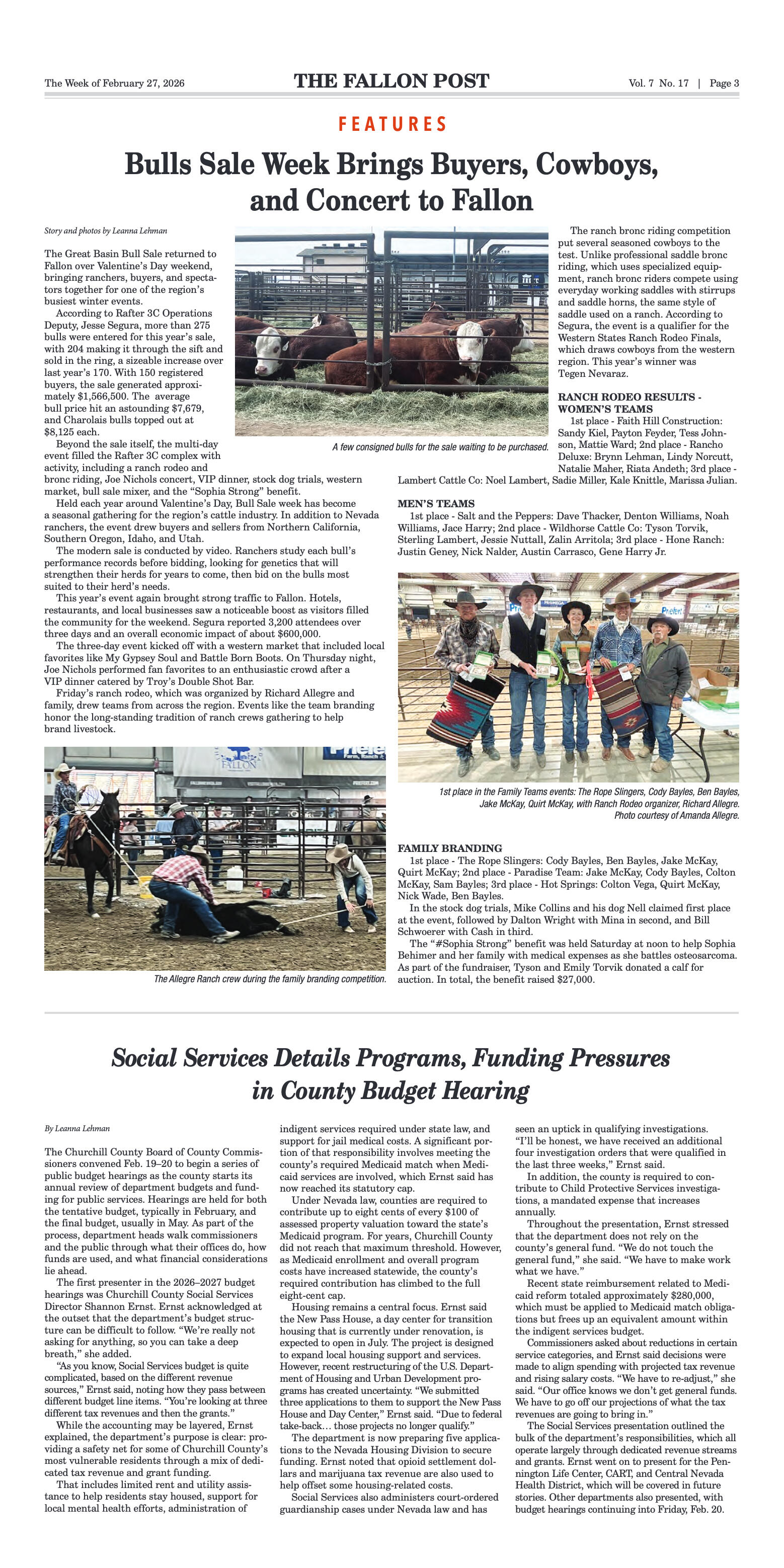

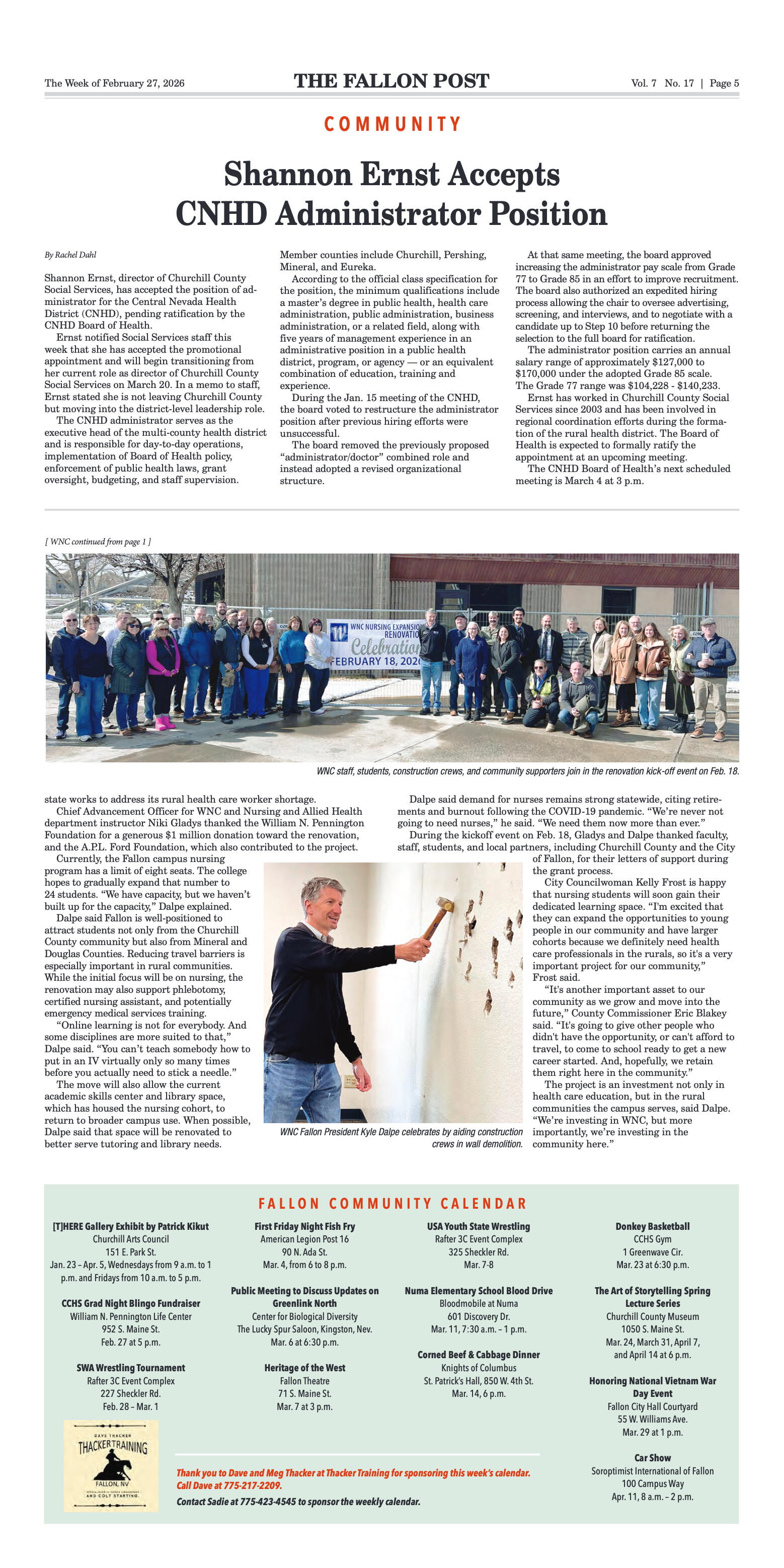

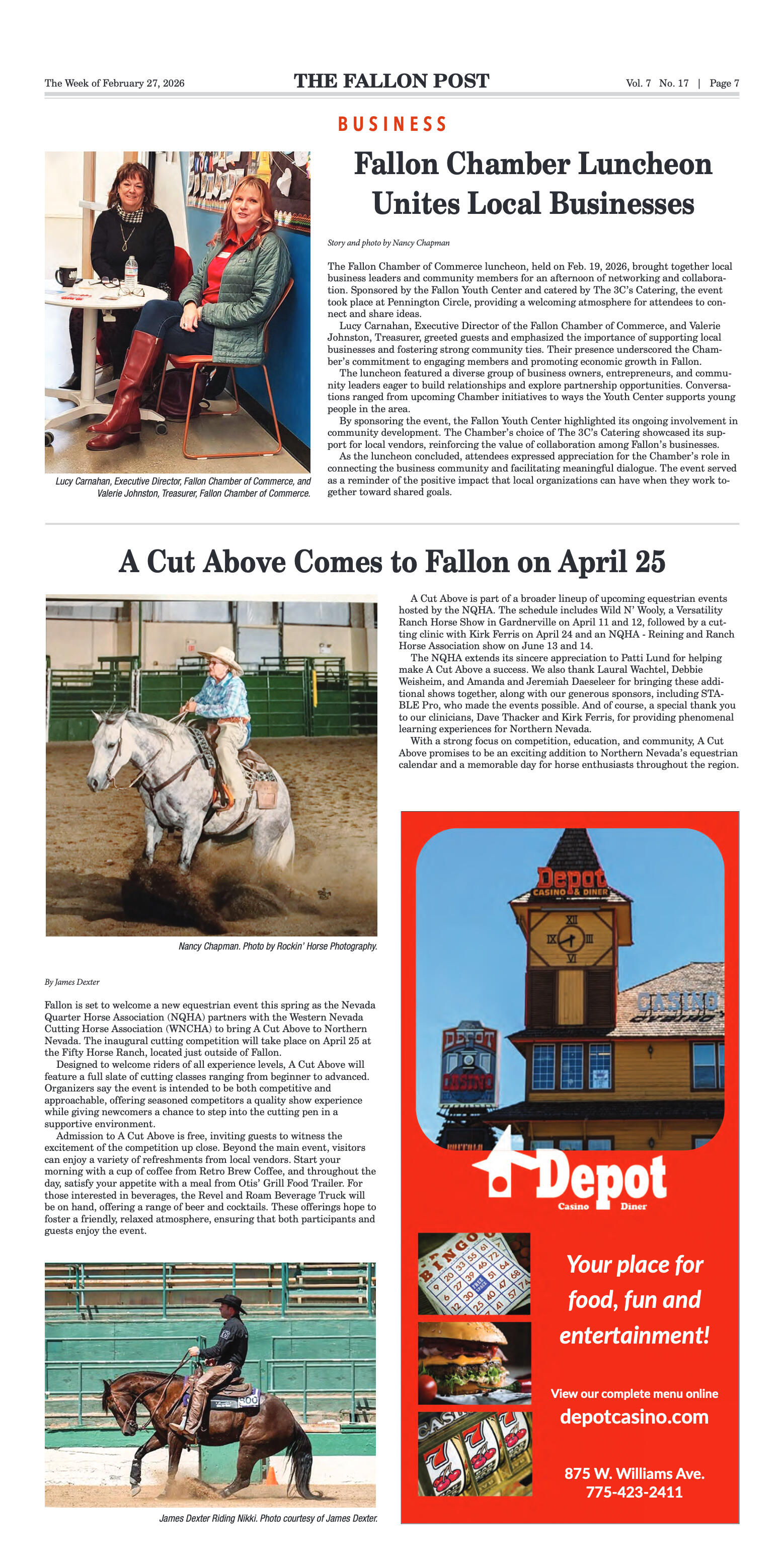
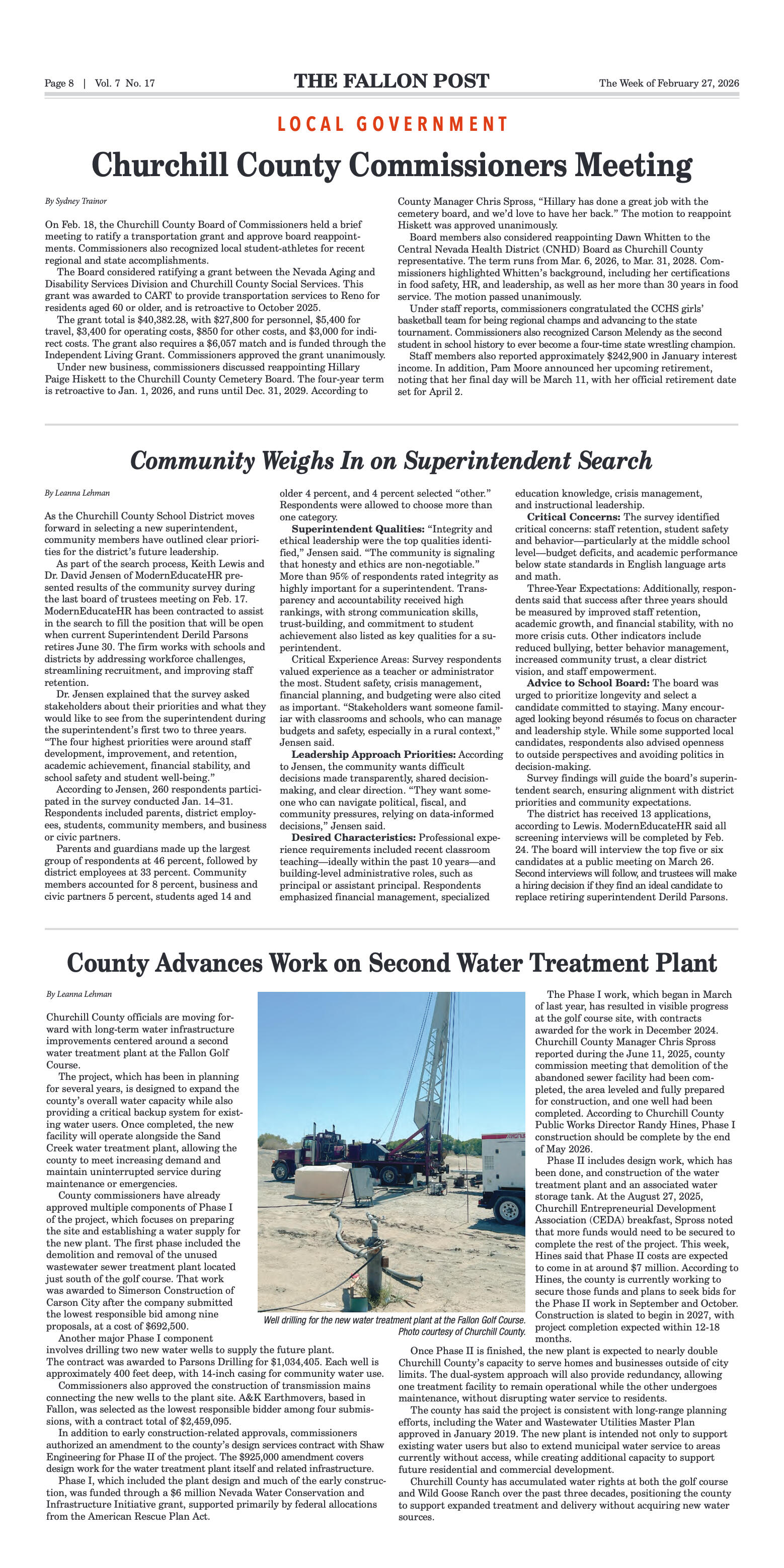
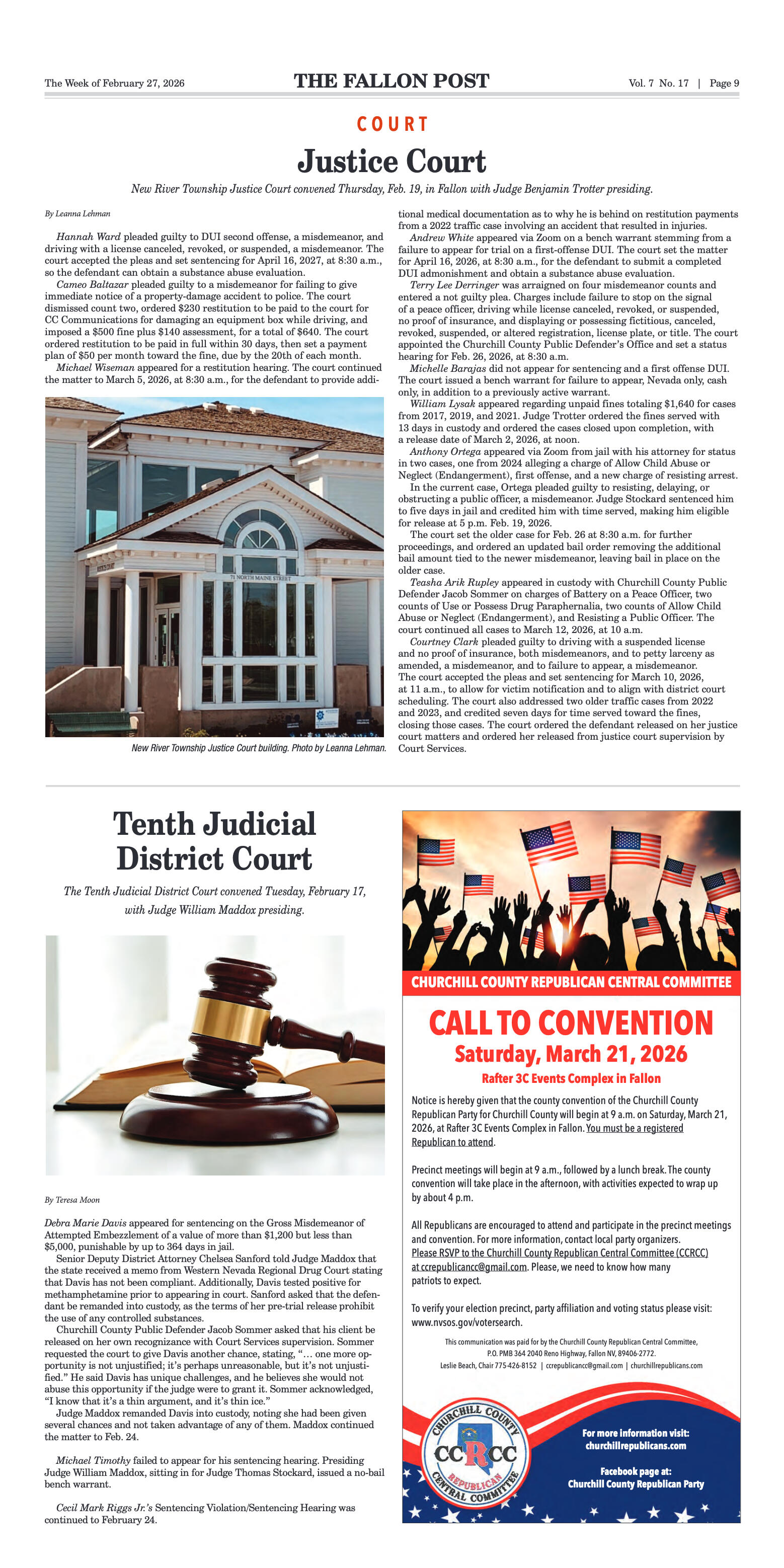
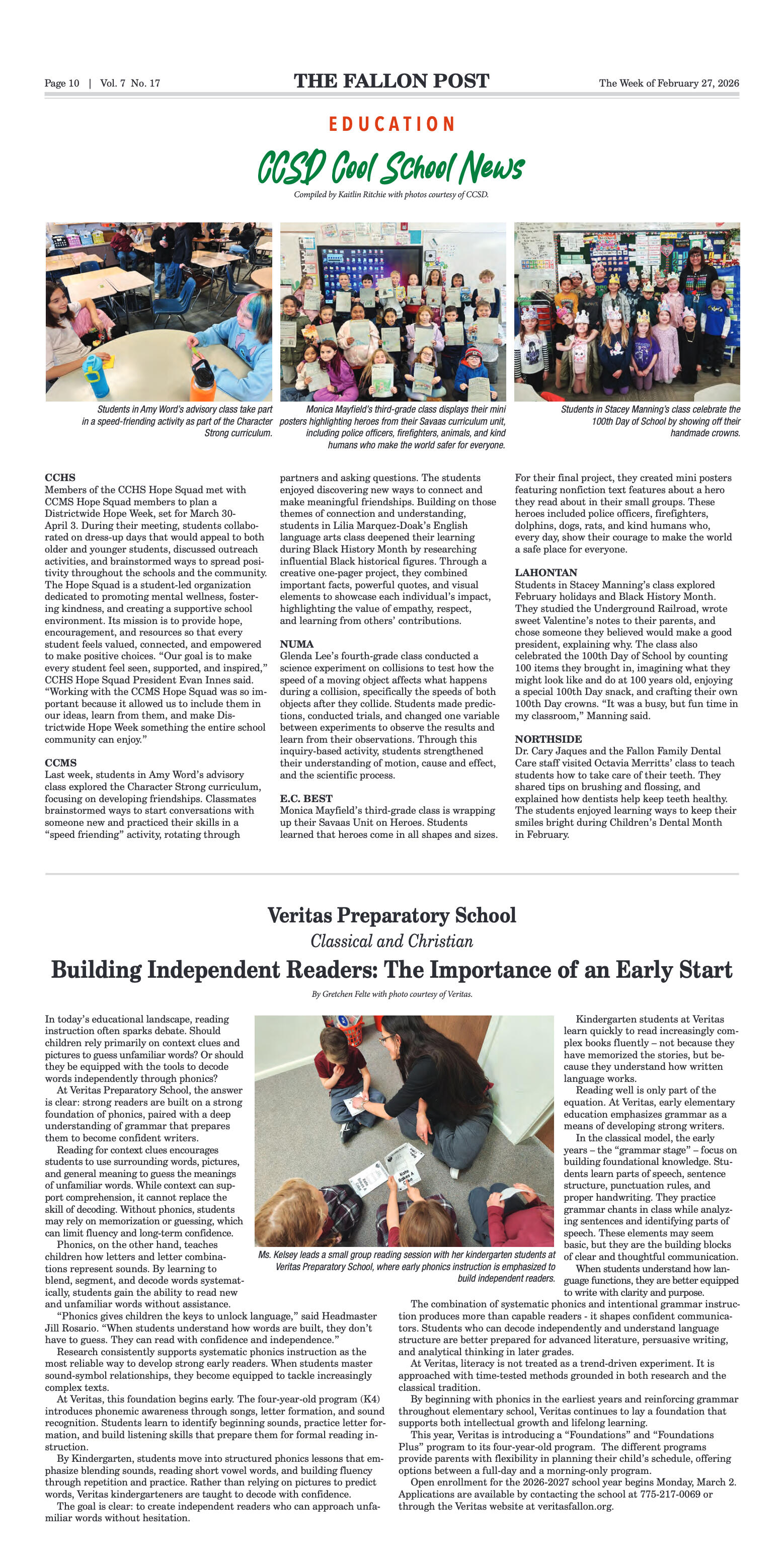
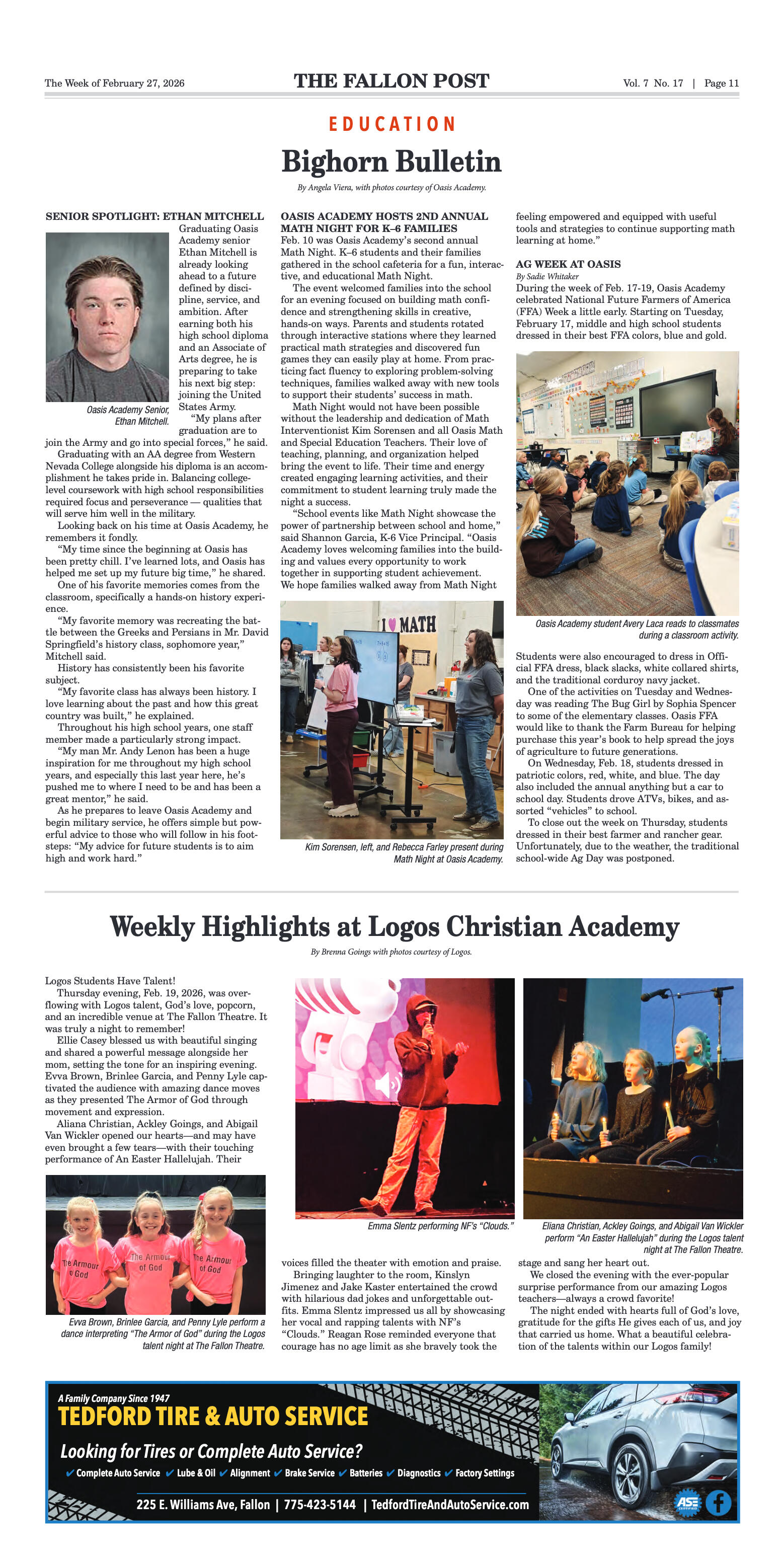
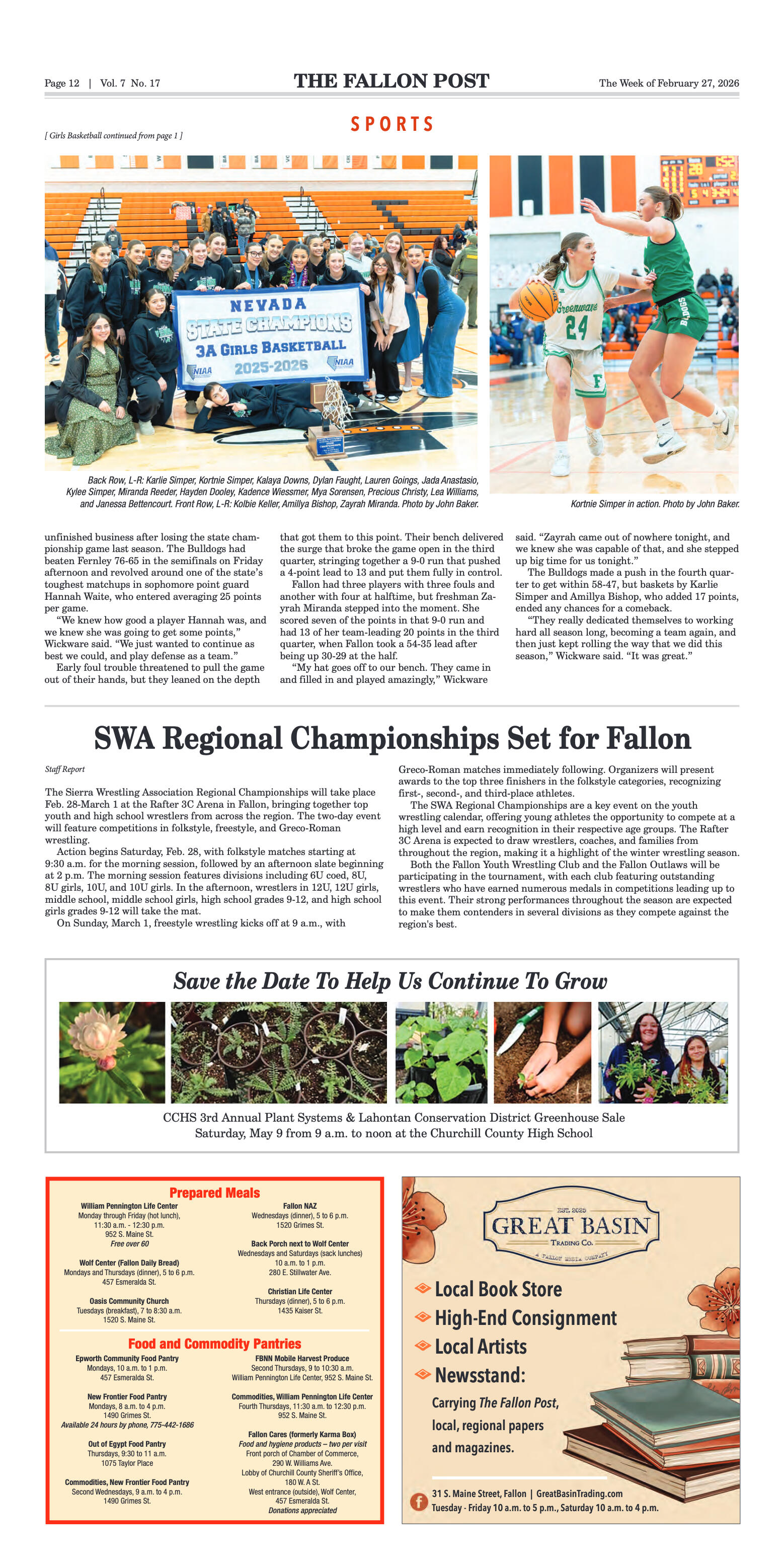


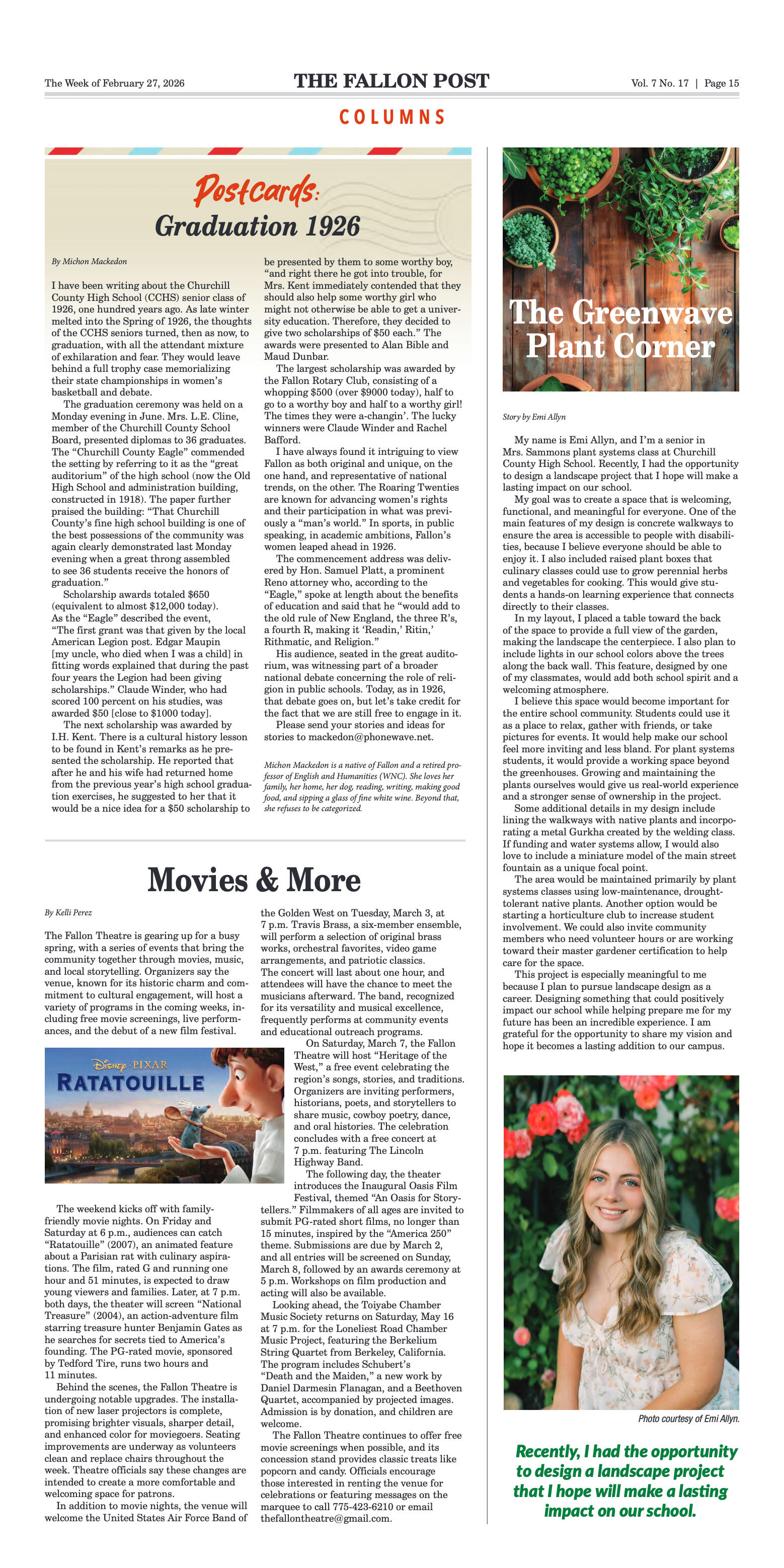
























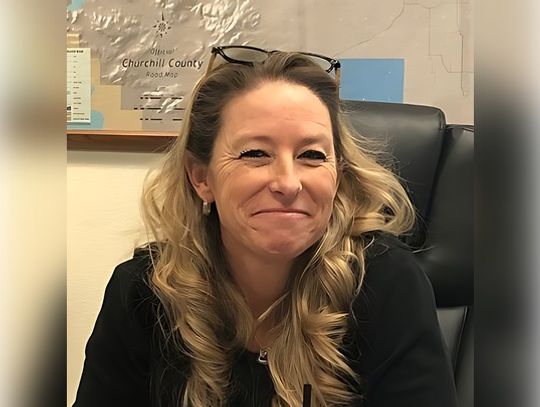


Comment
Comments